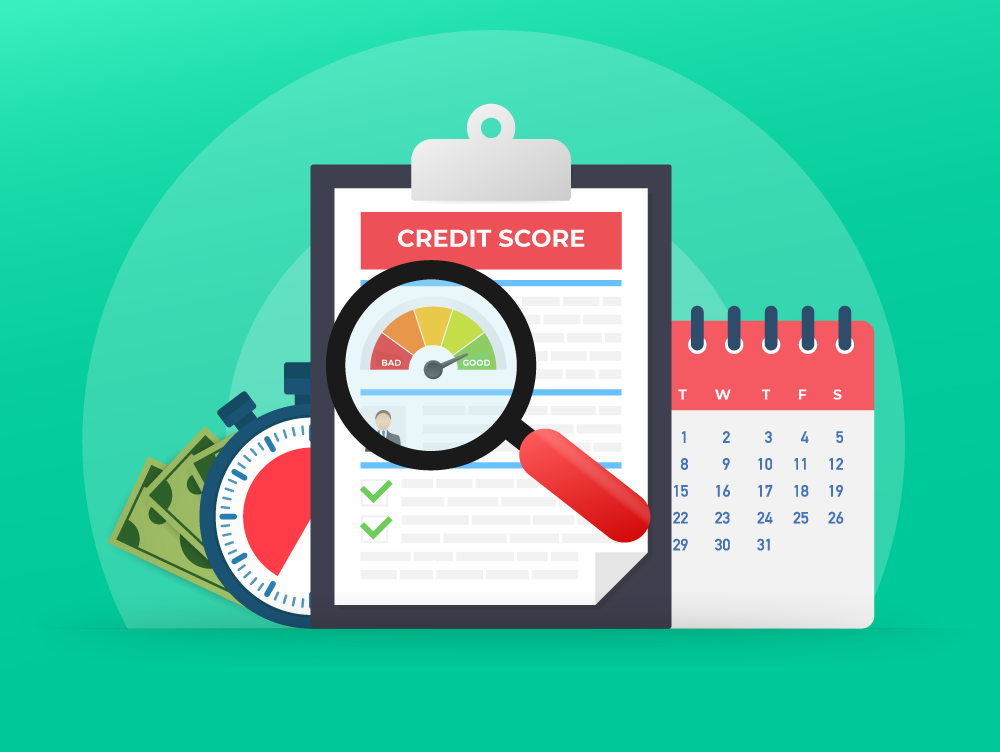8 Ways to Immediately Raise Your Credit Score

One of the most important steps to improve your credit score is to pay your bills on time. The easiest way to do this is to set up due date alerts. You can set these up within a few hours. Another quick way to raise your credit score is by increasing your credit card limit. This usually takes less than an hour, but it is important to pay down your balances as much as possible.
Paying bills on time
Your credit score is based on several factors, including the amount of credit you have and how frequently you make payments. Your payment history is the biggest determinant of your score. Utility and service payments made on time will boost your credit score. Credit scoring models use complex statistical analysis to evaluate your credit reports and assign you a three-digit score that reflects your predicted likelihood of making future payments. Each model will use a different scoring range, but most assign higher scores to riskier borrowers.
Your medical bills are another area where delinquency can affect your score. Medical bills are particularly problematic because they can result from billing errors or insurance disputes. Several surveys have shown that as many as 24% of survey respondents did not realize they owed a bill, 13% didn’t receive it, and 10% said the bill went to collections despite their payment. Large, unexpected medical bills are also a cause of account delinquency.
Payment history accounts for 35% of your score. This factor determines whether or not you make payments on time. It also indicates how often you make late payments. The longer you’ve been making payments on time, the higher your credit score will be.
Reducing balances
One of the most effective ways to raise your credit score is by reducing the amount of credit card debt that you have. Immediately reducing the amount of debt on your cards can increase your credit score by up to ten points. This improvement will vary depending on how much credit you have available and how high your balances are. People who are close to maxing out their credit cards may see an immediate jump of 10 points, while those with limited credit can expect a few points.
Another important way to raise your credit score is to reduce your credit utilization rate. This is also called your credit utilization ratio and is usually between 10 and 30%. You should aim to keep this ratio below 30%. If you have too many outstanding balances, you could end up with a high credit utilization rate, which will negatively impact your score.
Credit utilization is calculated by comparing the amount of credit that you have available versus the total amount that you owe on your cards. You can reduce your credit utilization ratio by paying off your debt faster. Another way to lower your credit utilization rate is by bumping up your credit limits.
Paying down your credit card debt is the most effective way to boost your credit score. By reducing your overall balance, you can lower your credit utilization and lower your interest costs. In just a month or two, your credit score can rise significantly.
Raising credit limit
Increasing your credit limit is an excellent way to boost your credit score and improve your financial flexibility. It allows you to make larger purchases and lowers the overall credit utilization, which is a major factor in your score. It also helps your credit utilization ratio, which compares the amount of credit you use with the total credit you have. This number is important for several reasons, including obtaining a home loan and paying a lower interest rate.
Typically, it takes about 30 days for credit card issuers to review your request, but you may be able to get it approved immediately. If your request is approved, you will have instant access to the extra credit line. If your request is rejected, you can try again in six months or a year, or even try another credit card with a lenient application process.
Another great way to raise your credit limit is to use it responsibly. Increasing your credit limit is a solid move forward in managing your finances and building a positive relationship with your credit card provider. You can use the extra credit to make more purchases or earn more rewards from the card company. And it can also raise your credit score if you use your new credit limit wisely. It can also help you get better deals on future financing.
However, if you’re a credit card issuer, you might want to wait a while before asking for an increase. Issuers may be concerned that you’re only making minimum payments or your balance is rising steadily. Both of these signs may indicate a financial hardship. It’s best to wait until you’ve made some progress on paying down your balance and increasing your limit.
Using installment loans judiciously
Bad credit can make borrowing difficult and you may have to pay high interest rates or offer security collateral to obtain a loan. But, sometimes you need money to meet a personal or business expense. Fortunately, there are many ways to fix your bad credit score and increase your borrowing power.
One way to boost your score is to make timely payments. Your payment history makes up three-fifths of your FICO or VantageScore. Therefore, it’s vital that you make your payments on time. Using installment loans can help you achieve this goal. But you should be careful not to use your installment loans for a large amount of money. Too much debt can strain your budget and lead to missed payments.
While a large loan might seem like a good idea at the time, it’s important to remember that the longer the loan term, the more interest you will pay. Installment loans are a better choice because you can make regular payments and keep your credit score up by being a responsible debtor.
Although installment loans don’t immediately raise your score, they are an excellent way to expand your credit mix. Since your payments will be reported to the credit bureaus, your payment history will help you build your credit history. Nevertheless, if you miss a payment by more than 30 days, this can negatively affect your credit score. Getting a repossession or foreclosure can seriously damage your credit, so it’s important to use installment loans judiciously.
Using Experian Boost
If you’re worried about your credit score, you may want to consider using a service called Experian Boost to raise it quickly. This credit score-boosting service allows you to immediately raise your score by as much as 19 points in a short period of time. This can be an excellent solution for individuals who have recently opened a new credit account and want to quickly raise their score.
One of the best things about Experian Boost is that it is free and does not require a large initial investment. All you need is to pay your monthly bills through an eligible account. For example, if you pay your Verizon, AT&T, and Netflix through the same account, you can use Experian Boost to instantly raise your credit score.
The service works by tracking any unrecognized bills you may have and integrating that information into your credit report. It also helps you maintain a positive payment history. These are important aspects of your credit report and could help your credit score. To get started, sign up for the service on the Experian website. Make sure to give Experian permission to scan your payment history. You can then review the information and make sure it is accurate.
While getting financing and making monthly payments is essential to raising your credit score, building a credit history can be difficult for people with a thin credit history. To overcome this, Experian Boost helps you build a strong history. By paying your monthly utility and cell phone bills on time, you can quickly raise your credit score and get a better chance of getting approved for a loan.
Using nontraditional data
In order to obtain a loan, lenders evaluate creditworthiness and determine whether or not a person can repay it. This can be difficult to do if you only have a few accounts and no credit history. This is where reporting nontraditional payments can help. Lenders are increasingly turning to nontraditional data to boost credit scores.
Credit quality affects many areas of your life. It influences your ability to apply for loans, pay utility deposits, and even get a job. The current emphasis on credit has caused problems for 40 million Americans. Twenty-two percent of the adult population has thin credit. Fortunately, there are ways to raise your score quickly and easily. The largest credit scoring company in the US, FICO, uses information from credit reports to calculate credit scores.
Some scoring models use data from your utility and rent payments to determine your score. These payments are often reported to the credit bureaus as nontraditional data, but they boost your credit score. You can ask your landlord to report your rent payments to the credit bureaus. This boosts your credit score if you are a new borrower.
Some alternative data sources may not be as accurate as traditional credit data. They may have unintended consequences, such as penalizing certain groups or rewarding certain behaviors. For example, frequent moves can give lenders the false impression that you are unstable, which can affect your ability to get credit. Additionally, alternative data sources are subject to a higher risk of unlawful discrimination.




